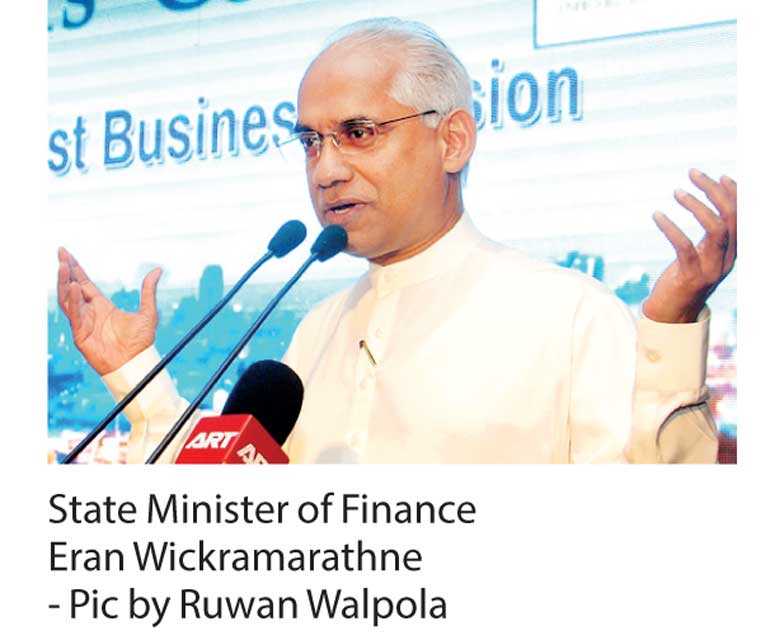Monday Feb 23, 2026
Monday Feb 23, 2026
Wednesday, 11 July 2018 00:10 - - {{hitsCtrl.values.hits}}

By Uditha Jayasinghe
Issuing a clarion call for liberalisation, State Minister of Finance Eran Wickramaratne yesterday encouraged the private sector, particularly the shipping industry, to open up, and also encourage entrepreneurship to foster growth.
Addressing the Shippers Council Annual General Meeting (AGM) as Chief Guest, the State Minister made an impassioned argument for liberalisation, insisting that competition was essential for rapid economic expansion and provision of key services to the public.
He emphasised that Sri Lanka needs to commit to several “big things” to reach the top quartile of fast-growing countries with education, entrepreneurship and liberalisation listed by him as among the top three.
“There are concerns of trade wars between big powers, and as a result protectionism. But whatever those trade wars may be, our future lies not in this market, our future lies in conquering the markets around us; that is Sri Lanka’s position. It is education that matters, not who is supplying it. It’s entrepreneurship that matters, not whose idea it is. It’s trade that matters, and it is consumers that must eventually benefit,” he said. “The world keeps changing but liberalisation has worked in other industries. It has worked in the telecommunications industry, it’s worked in the hotel industry, which is why we are seated in the Shangri-La Hotel, because this market was one of the first to be opened out in the 1970s. That is why my mother stayed on a waiting list for ten years to get a phone, but I got a phone with one phone call. That is because of liberalisation. We have to be open to what is really happening in the world.”
“I know you will not invite me next year,” he added, after delivering these strident remarks, and was met with laughter and applause from the audience. Wickramaratne was adamant that Sri Lanka’s businesses needed to end rent-seeking behaviour and be willing to embrace competition.
“The only way is to produce at a better cost than everybody else. Most of the people who come and sit outside my door are businessmen. Most of the time, the request is to protect their industry. Most of the time, the argument runs ‘you are protecting jobs and you are protecting incomes,’ rarely would anyone come and speak for the consumer. The battle is between the consumer and the producer. The Government is always trying to balance between these interests.
“It is only competition that can deliver on both fronts for consumers, therefore whatever the industry might be, they need to be competitive. As a Government, we are going on the route of making Sri Lanka more economically liberal. That is why in the last Budget, the Finance Minister removed para-tariffs on 1200 items. We expect to reduce it even further, but already people are saying that if we do that we might be open to unhealthy competition. Our Government also wants to change the mix of direct to indirect tariffs, indirect tariffs put a higher burden on the poor, and they need to be reduced.”
The State Minister stressed that attitudes need to change dramatically. He pointed out that entrepreneurs are often the drivers of their economies, but in Sri Lanka the standard expectation is still for children to become doctors or lawyers. He noted that only 2.78% of Sri Lanka’s entire workforce can be categorised as entrepreneurs, while countries such as Vietnam are at 19%. Even China, with its large population, has 7.5% of its population listed as entrepreneurs.
“Your industry too has to face up to the issues of protection versus competition. You have to face up to the reality that prices cannot always be controlled and have to be competitive. You have to face up to the fact that foreign participation becomes a necessity in an integrated and globalised world. I know there are many arguments we have been through, even in the shipping industry, even in the agency industry, but in order to be sustainable and grow beyond the rates that we are growing, we have to think big and we have to think in a more competitive way. We have to go beyond transshipment to more value-added third party logistics activities as well. It is important to maximise returns for other operators, to increase their participation.”